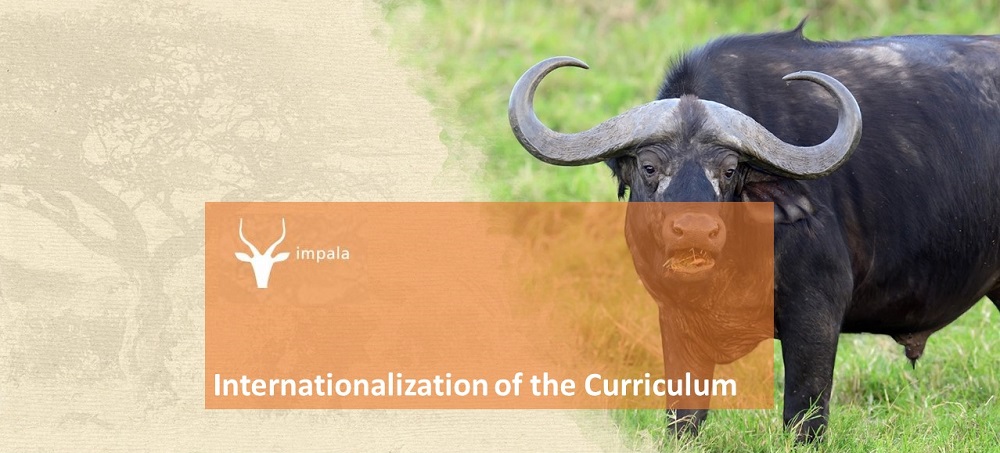South Africa needs young academics who are representative of the country’s population groups and who can succeed and compete internationally. There is a need to develop international research capacity in South Africa by promoting and developing the internationalisation of doctoral studies and researcher development and at the same time responding to the needs of the wider South African and the local institutional contexts.
As part of the German Excellence Initiative, the Ruhr University Bochum (RUB) has set up an innovative internationalisation programme for doctoral education that might be of interest for internationalising researcher development in South Africa: the ‘Research School PLUS’ programme.
What makes the Research School PLUS unique and a success story is that it offers: competitive funding lines providing support to early career researchers to engage in international research and international networking activities – at home and abroad, comprehensively training and hands-on experience in successfully writing and reviewing competitive international research grant proposals.
South Africa’s Quest for a Next Generation of Internationally Competitive Researchers
South Africa’s quest for a “next generation” of researchers needs young academics who are both representative of all the country’s population groups and who can compete and succeed internationally (http://theconversation.com/how-africa-is-tackling-next-generation-fears-in-academia-49057). There is a need not only to further develop research capacity in South Africa but also to promote and support the internationalisation of doctoral studies and researcher development more generally (https://www.idea-phd.net/images/doc-pdf/CHEC_Carnegie_Policy_Brief_web.pdf) as internationalisation has been hallmarked as a key component of facilitating the development of quality doctoral education and research excellence in the Salzburg Principles. (https://eua.eu/downloads/publications/salzburg%20ii%20recommendations%202010.pdf). ‘Doctoral candidates must be allowed independence and flexibility to grow and develop. Doctoral education is highly individual and by definition original. The path of progress of the individual is unique, in terms of the research project as well as in terms of the individual professional development.’ https://eua.eu/resources/publications/615:salzburg-ii-%E2%80%93-recommendations.html. This is the more important as ‘doctoral education has become of paramount significance in a world where knowledge becomes the new ‘fuel’, the ultimate economic renewable to economic growth leading to a knowledge-based economy’ https://era.ideasoneurope.eu/2014/03/11/the-value-of-the-phd-in-a-knowledge-based-economy-beyond-financial-and-career-gains/
However, the internationalisation of doctoral studies or researcher development also needs to serve and respond to the local and institutional South African context, especially the specific interests and requirements of the emerging researchers.
Bringing about long-lasting change therefore requires not only adequate funding but the efforts of all institutions, senior researchers and the emerging researchers themselves. The latter especially ‘need to be enabled to take responsibility for their own development, and use the opportunities provided by researcher development programs to engage with other early career researchers and form their own support networks and lobby groups’ – not only locally but also from around the world.’ (https://theconversation.com/how-africa-is-tackling-next-generation-fears-in-academia-49057)
How should researcher development schemes be designed to allow and enable researchers to take responsibility for their own research and research careers, to support each other in this endeavour and to take responsibility for the internationalisation ? How to develop the critical research skills required to succeed in an internationalised South African research context, especially in historically disadvantaged universities with often relatively low levels of overall research capacity?
A promising model for building international research capacity locally
The Ruhr-University Bochum (RUB) focuses on talent. It is committed to providing an outstanding international education, professional development training and other kinds of career support to promising early career researchers from around the world. RUB has set up a university-wide platform RUB Research School (RUB-RS) for the education, training and career support of early career researchers and the internationalisation. (http://www.research-school.rub.de/).
It is a cross-faculty graduate school that includes and integrates the early career researcher community: all doctoral students, post-doctoral researchers, junior and senior faculty, coming from all the 20 RUB departments and from all over the world. The RUB-RS supports and complements the discipline specific doctoral education and researcher development, reducing the workload from the supervisors and mentors and enabling them to focus on supervision and mentoring of the individual early career researchers. The RUB-RS serves as a central hub and think tank for the mutual sharing, learning and collaboration on all aspects involved in developing research capacity and including the internationalisation, as envisaged in the RUB Research School Plus Programme.
RUB Research School PLUS: an internationalisation success story
The Ruhr University´s Research School PLUS (RUB-RS PLUS) is an award winning internationalisation programme for early career researchers offering advanced international training, funding, and advice beyond disciplinary and national borders and supports transition into the global research community. The RUB-RS PLUS is funded within the framework of the German „Excellence Initiative“. (http://www.research-school.rub.de/rsplus.0.html
What makes the RUB-RS PLUS unique and an internationalisation success story is that it offers all of the following: Predefined competitive funding lines providing financial support to early career researchers allowing them to engage in a variety of individually chosen, innovative and tailor-made international research and international networking activities at home and abroad, such as:
- international research stays abroad, including field research and laboratory visits
- attending international conferences, summer schools and workshops
- inviting leading guest researchers from around the world to RUB
- organizing international early career researcher events at the RUB such as international PhD conferences, lecture series, publication workshops etc.
The RUB-RS PLUS funding actively engages the junior researchers in the review process. They become an part of the reviewing community evaluating their peers. While applying for the funding to internationalise their research and to set up international research networks, they receive training and hands-on experience in successfully writing and in successfully reviewing competitive international research grant proposals as well. (http://www.research-school.rub.de/rsplus_review_decision0.0.html)
Up to now, nearly 1.500 successfully written and reviewed international grant proposals, 620 doctoral reviewers, 1000 newly established international contacts across the world, numerous internationally peer reviewed publications and visits by internationally renowned guest scientists from around the world as well the smooth transition of RUB´s early career researchers into the global research community all pay tribute to the internationalisation success of the RUB RS-PLUS., or our Hall of Fame (http://www.research-school.rub.de/hall-of-fame.0.html).
Learn HERE how the RUB Research School PLUS Review Process works!


